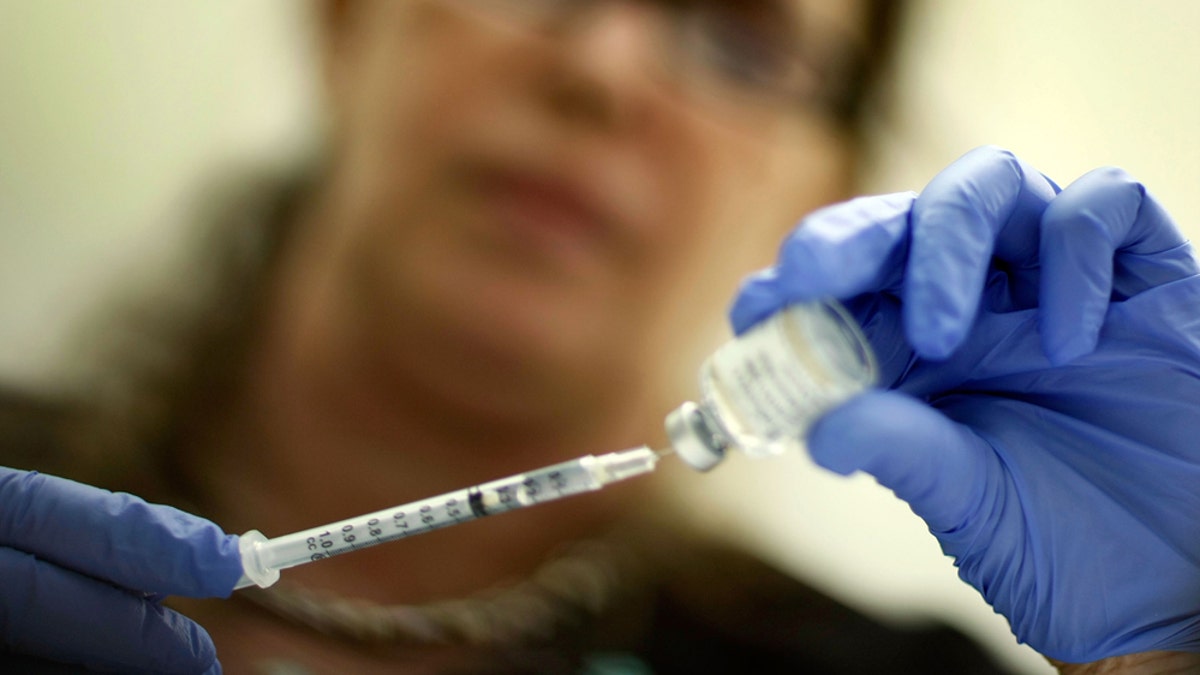
MIAMI - NOVEMBER 03: Marina Spelzini, a registered nurse, measures out an H1N1 vaccine shot at the Miami Dade County Health Department downtown clinic on November 3, 2009 in Miami, Florida. Unlike other parts of the country which are experiencing long lines and shortages of the vaccine, South Florida is not having this problem. The Miami-Dade County Health Department received 195,000 doses of the vaccine but has only given out about 10,100. Broward County has 52,000 doses on hand and has administered about 10,000 doses. (Photo by Joe Raedle/Getty Images) (Getty Images)
A New York City-based infectious disease specialist said a new vaccine developed by Spanish scientists, which could turn HIV into minor infection status, is reason to be cautiously optimistic.
Dr. Joseph Rahimian said Thursday news of an HIV vaccine is certainly exciting, but questions remain.
“An HIV vaccine has been the holy grail for infectious disease doctors for a very long time,” Rahimian said. “ There are a lot of people interested in creating one and obviously a lot of demand for it, so there would be a lot of excitement if this research is accurate.”
The vaccine, developed by scientists at the Spanish Superior Scientific Research Council (CSIC) in Madrid, works by training the immune system to detect HIV and learn how to combat the virus.
In a trial involving 30 healthy volunteers, scientists found that 90 percent of those who were given the MVA-B vaccine developed an immunity against the virus and 85 percent maintained this for a year.
Professor Mariano Esteban, from CSIC, said, "MVA-B vaccine has proven to be as powerful as any other vaccine currently being studied, or even more."
He said the vaccine was like showing the body a picture of the HIV, "so that it is able to recognize it if it sees it again in the future."
"If the virus enters the body and tries to develop in a cell, the immune system is ready to inactivate the virus and destroy the infected cell," he added. Scientists hope that if bigger trials are successful, HIV would no longer cause AIDS and would be much less contagious.
'"If this genetic cocktail passes Phase II and Phase III future clinic trials, and makes it into production, in the future HIV could be compared to herpes virus nowadays," according to the study.
However, Rahimian said this study needs much more room to grow.
“The population that they used is very small, and they followed them out to one year. So one important question is how long does this last for? A vaccine that has to be given repeatedly every year is less exciting than a vaccine that can give long-term immunity,” he said.
On the other hand, Rahimian pointed out there are some vaccines given every year, which are successful, like the flu shot.
“I would say many people have tried to create vaccines, and it is a very difficult task, so any enthusiasm for a successful vaccine is guarded,” he said.
Newscore contributed to this report.








































